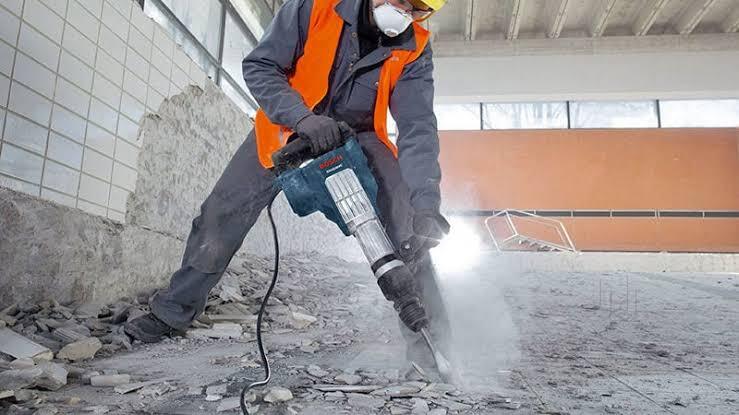
Demolition contractors play a crucial role in the construction and renovation industry. They are specialized professionals responsible for the safe and efficient demolition of buildings, structures, and other components. Whether you are undertaking a large-scale commercial project or a residential remodel, understanding the roles and responsibilities of a demolition contractor is key to ensuring the success of your project. Here’s an in-depth look at what demolition contractor do, how they operate, and how to choose the right one for your needs.
Roles and Responsibilities of a Demolition Contractor
**1. Planning and Assessment
Before any demolition work begins, a thorough assessment of the site is essential. Demolition contractors are responsible for:
- Site Evaluation: Inspecting the site to determine the scope of work, the type of structure, and any potential hazards.
- Permit Acquisition: Securing necessary permits and approvals from local authorities. Compliance with regulations is crucial for legal and safety reasons.
- Risk Assessment: Identifying potential risks and hazards, such as the presence of hazardous materials like asbestos, lead, or chemicals, and planning for their safe removal.
**2. Preparation and Safety
Preparation is critical for a successful demolition project. Contractors are tasked with:
- Site Preparation: Establishing safety barriers, signage, and secure access points to protect the public and workers.
- Utility Disconnection: Coordinating with utility companies to disconnect water, electricity, gas, and other services to prevent accidents during demolition.
- Waste Management: Implementing plans for waste removal and recycling. Contractors often handle the sorting and disposal of debris in accordance with environmental regulations.
**3. Demolition Execution
The actual demolition process involves several key activities:
- Method Selection: Choosing the appropriate demolition method based on the structure and project requirements. Common methods include mechanical demolition (using excavators and bulldozers), implosion (using explosives), and manual demolition (using hand tools).
- Structural Breakdown: Systematically dismantling or tearing down the structure while ensuring stability and minimizing damage to surrounding areas.
- Debris Removal: Efficiently removing debris from the site and transporting it to designated disposal or recycling facilities.
**4. Post-Demolition Cleanup
Once demolition is complete, contractors are responsible for:
- Site Cleanup: Removing any remaining debris and ensuring the site is cleared and prepared for subsequent construction or redevelopment.
- Final Inspection: Conducting a final inspection to ensure all aspects of the demolition are completed satisfactorily and in compliance with safety and environmental standards.
Choosing the Right Demolition Contractor
Selecting a qualified and reliable demolition contractor is essential for the success of your project. Here are key factors to consider when making your choice:
**1. Experience and Expertise
Look for contractors with extensive experience in demolition projects similar to yours. Experienced contractors are more likely to handle unexpected challenges efficiently and safely. Check their portfolio and ask for references to gauge their expertise.
**2. Licensing and Insurance
Ensure the contractor is properly licensed and insured. Licensing indicates compliance with local regulations, while insurance provides protection in case of accidents or damage during the demolition process. Verify the contractor’s insurance coverage, including liability and worker’s compensation.
**3. Safety Record
Safety is paramount in demolition work. Choose a contractor with a strong safety record and a commitment to adhering to safety protocols. Ask about their safety training programs and accident prevention measures.
**4. Reputation and Reviews
Research the contractor’s reputation by reading reviews and seeking recommendations from previous clients. Positive feedback and satisfied customers are good indicators of a contractor’s reliability and professionalism.
**5. Cost and Estimates
Obtain detailed estimates from multiple contractors to compare costs. While it’s important to consider your budget, be cautious of unusually low bids, as they may indicate compromised quality or hidden costs. Ensure the estimate includes all aspects of the demolition project, including permits, labor, equipment, and disposal.
**6. Environmental Considerations
Choose a contractor who follows environmentally responsible practices. This includes proper handling of hazardous materials, recycling of debris, and adherence to local environmental regulations. Contractors committed to sustainability contribute to greener construction practices.
Conclusion
Demolition contractors are vital to the successful execution of demolition projects, offering expertise in planning, safety, and execution. Understanding their roles and responsibilities, and carefully selecting the right contractor, ensures that your project proceeds smoothly, safely, and in compliance with regulations. Whether you are demolishing a residential property, a commercial building, or any other structure, a professional demolition contractor will help you navigate the complexities of the process and achieve your project goals efficiently.